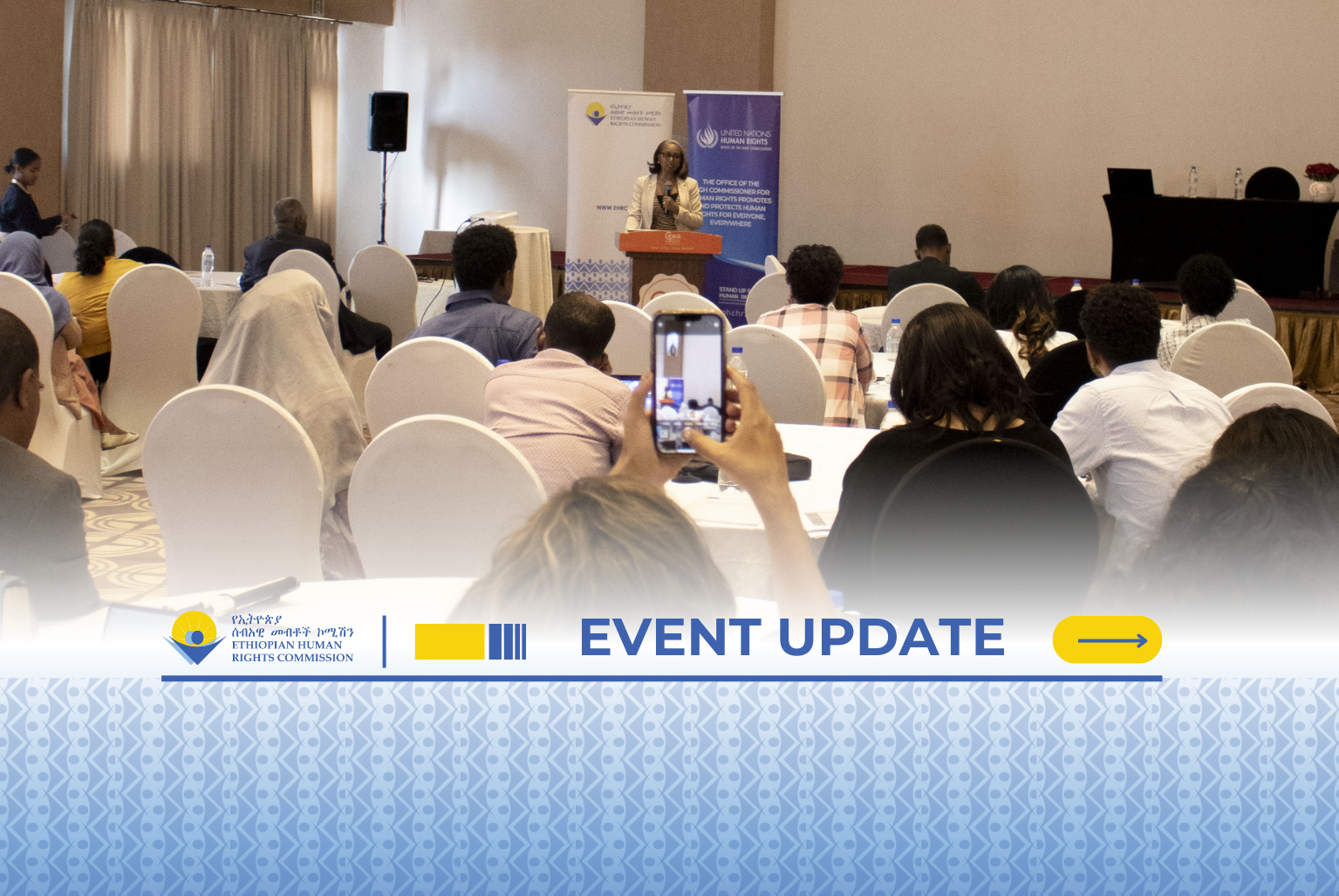The Ethiopian Human Rights Commission (EHRC) and the Office of the High Commissioner for Human Rights—East Africa Regional Office (OHCHR-EARO) in view of their respective mandates to enhance human rights compliance, inclusion, and victim-centeredness in Ethiopia’s transitional justice (TJ) process organized a consultation on the draft Strategy for the Participation of Victims and Vulnerable Sections of Society in the Ethiopian Transitional Justice (TJ) process on April 29, 2025, in Addis Ababa.
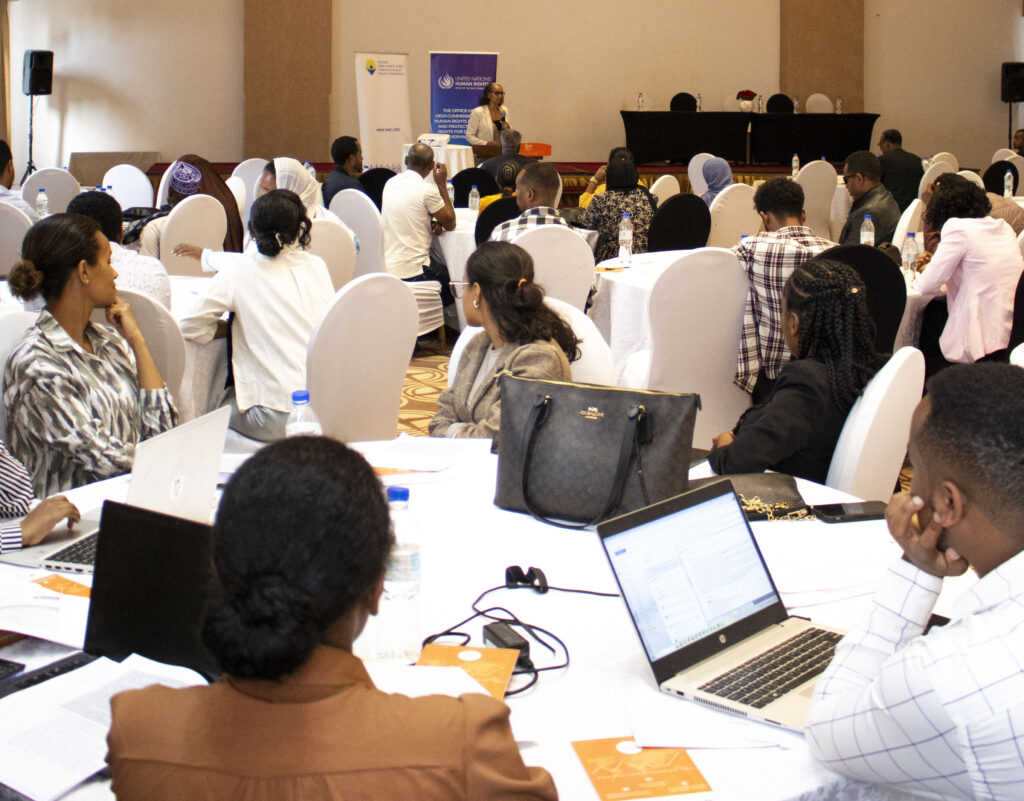
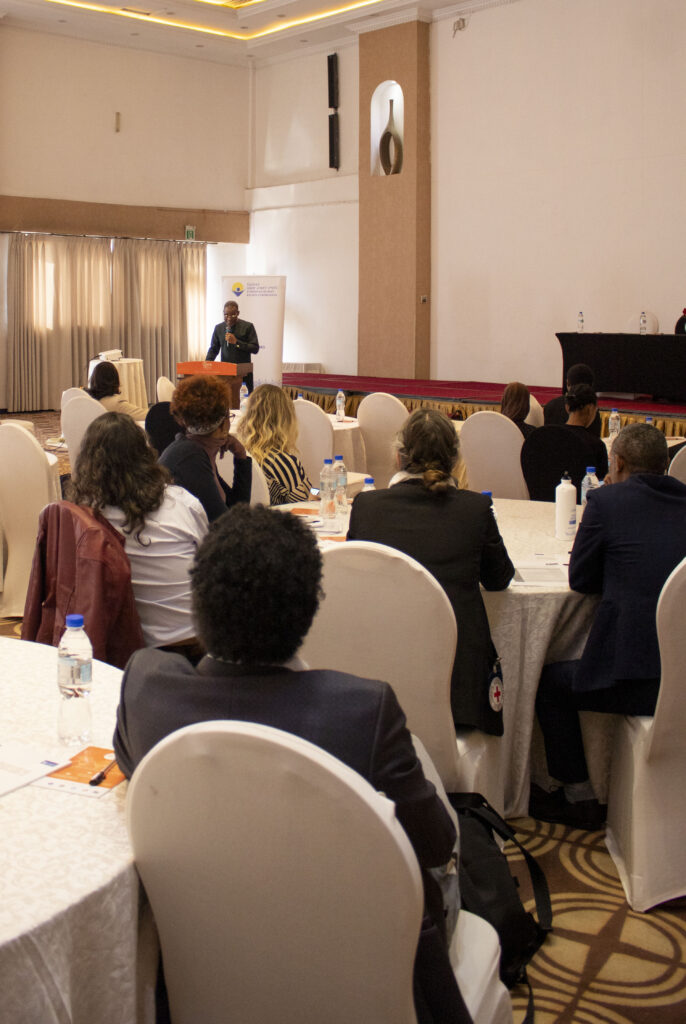
The overarching objective of the draft Strategy is to ensure that the TJ process meaningfully engages and responds to the needs, priorities, and concerns of victims and vulnerable sections of society including women, children, youth, older persons, persons with disabilities, refugees, internally displaced persons, returnees, and migrants in the TJ process. In that regard, the consultation aimed to provide all relevant stakeholders with an opportunity to engage in the strategy’s design and contribute to its improvement.
The consultation brought together victims/survivors of human rights violations, local civic society representatives, members of the national Children’s Parliament, members of older persons and persons with disability associations, representatives from the Ministry of Justice, United Nations (UN) agencies, inter-governmental organisations, international non-governmental organisations, and development partners.
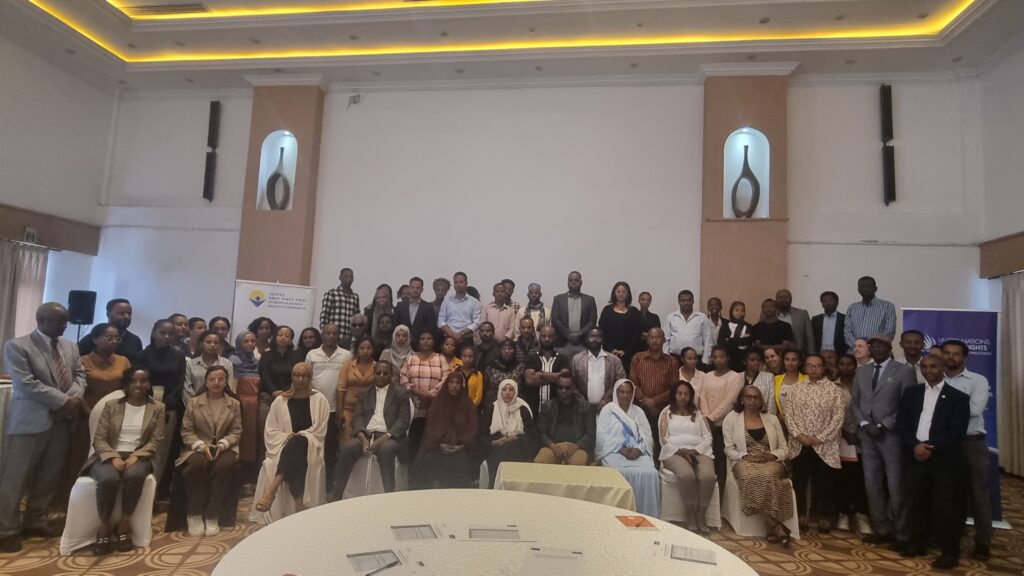
A representative from the Ministry of Justice provided an in-depth overview of the draft strategy, highlighting its importance, the key principles guiding the strategy, strategic engagement areas and activities that would ensure victims’ and specific groups right to participate in the TJ process. This was followed by a presentation by UN Women on women’s participation in the TJ process based on an assessment carried out by the Agency. To enhance women’s participation in the TJ process, the assessment underscored the need to raise awareness; ensure security and safety; offer services such as trauma healing, food aid, and economic support; and support survivors’ networks.
During Focused Group Discussions (FGDs), participants highlighted barriers to participation, the strategic measures that should be taken in law-making and institutional design, the accessibility and special protection needs of victims and specific groups, as well as enhancing access to justice for these groups to ensure their meaningful participation in the process. The input gathered from the FGDs were comprehensively recorded and will be forwarded to the Ministry of Justice for incorporation in the strategy.
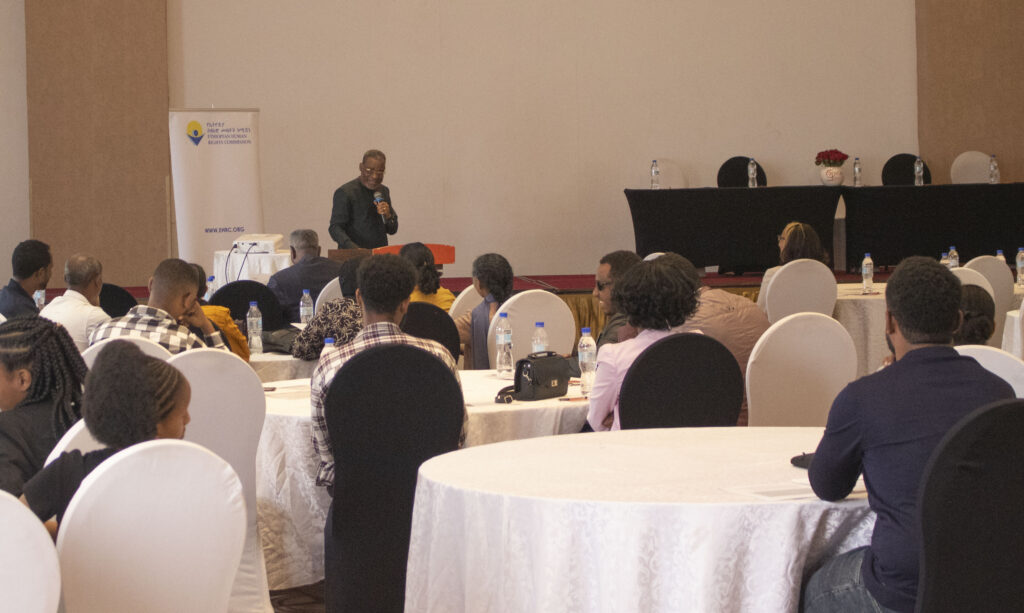
In his opening remark, Mr. Marcel Akpovo, Regional Representative of OHCHR-EARO, underscored the centrality of victim centeredness in TJ processes. Mr Akpovo further emphasised that victims of human right violations, vulnerable sections of society, civil society, and diverse stakeholders must participate meaningfully in order for TJ processes to be effective and transformative.
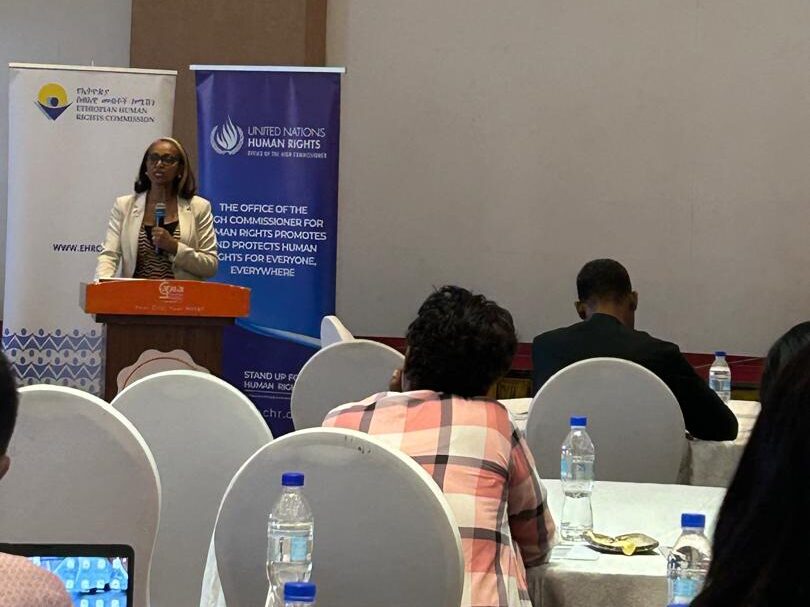
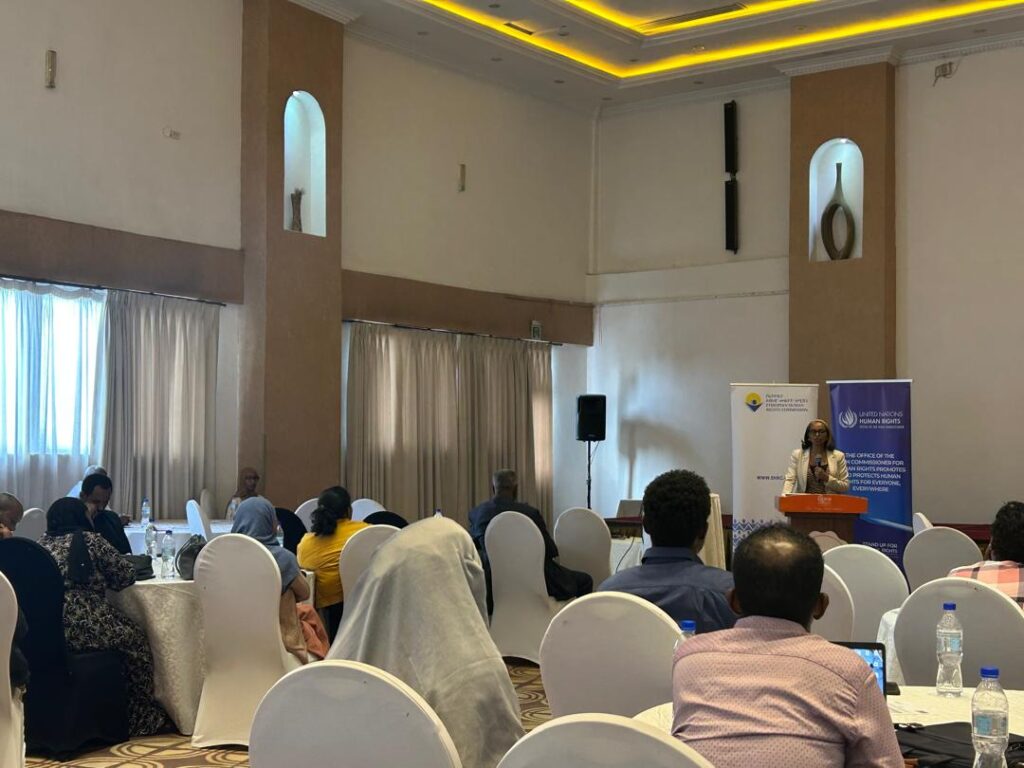
Rakeb Messele, Deputy Chief Commissioner of EHRC, reaffirmed EHRC’s commitment to promoting an inclusive, victim-centered, and human rights-compliant TJ process, and advocating for victims and specific groups effective participation in Ethiopia’s TJ process. She highlighted the challenges of participation in the TJ process and noted that the strategy must provide practical, context-sensitive, and measurable actions for victims and specific groups to participate in the TJ process. Rakeb indicated that “the participation of victims and vulnerable sections of society must be transformative, empowering, and should drive the TJ process based on their lived experiences.”
